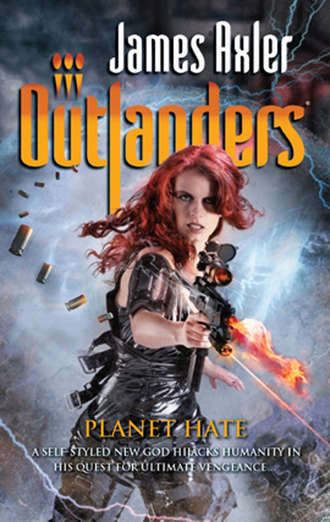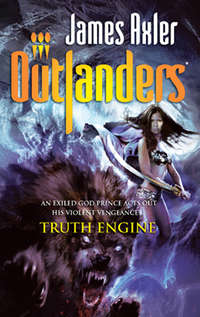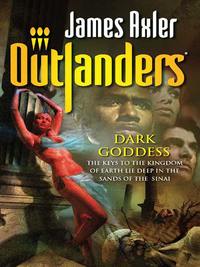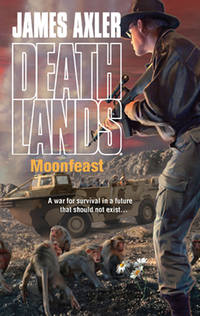
Полная версия
Planet Hate
Domi breathed deeply for a moment, scenting the air and listening to the contented buzzing of insects amid the fluttering petals. The whole settlement had been rebuilt, constructed from the ashes of Snakefishville at a furious rate. Even now, behind the buzz of the honeybees and the chattering of conversation, Domi could hear hammering and sawing as construction workers continued to build the towering edifices that would dominate the skyline of Luilekkerville out here close to the Pacific coastline.
With its fresh air and happy population, the change in the ville seemed almost a bewitchment.
As Domi stood there, one of the passersby stopped in front of her. When Domi lifted her eyelids, two scarlet orbs reappeared like glistening rubies in her elfin face as she turned her attention to the stranger. The stranger was a beautiful woman of indeterminate middle years, a golden tan to her skin and smile lines around her eyes with a long lustrous mane of blond framing her pretty face. A small wicker basket depended from its hard straps under the woman’s right arm, its open bowl filled with freshly picked flowers. Domi watched in surprise as the woman reached into the basket and handed her a flower, its trimmed stem just an inch or so in length.
“For you,” the woman said, smiling brightly as she offered Domi the flower.
Domi reached out and plucked the flower from the woman’s hands, nodding in gratitude. “Thank you,” she said, surprise clear in her tone.
“Our love is solid as rock,” the woman recited with a warm smile before stepping past Domi and moving on down the street.
It was not often that a stranger approached Domi in such joyous circumstances. She had grown up a wild child of the Outlands and she was used to being singled out as a freak thanks to the albinism that distinguished her from the people around her. As Domi watched, the blonde woman continued along the street, handing out more flowers to the people crowding there, offering her chanted words before moving on to the next.
Domi peered at the flower, sniffing at its rich scent for a moment as she twisted its stem around and around between her fingers, making it spin. There was something going on here, just beneath the surface—an all-pervading attitude that seemed to have affected the populace of the born-again ville. The nine villes had always acted as a sort of safe haven, a shelter from the ravages that man had brought upon himself with the advent of the nukecaust and the Deathlands era that followed. They had grown up as a part of the Program of Unification, and had brought a much-needed regimentation to the lives of their residents. In total, forty-five thousand people had been spread equally across nine walled cities, and they had lived a harmonious existence. Yet the happiness on show here, the undercurrent of joy, was something Domi had never seen before. It was a happiness that transcended logic, a primitive happiness at simply being alive. It was sinister somehow, as if a mass brainwashing had taken place.
Domi stepped out of the way as three gallivanting children came hurrying past, laughing as they threw a weighted cloth bag back and forth among themselves. The oldest of them was perhaps nine years old, and she wore a daisy chain in her flowing black hair, in unconscious imitation of many of the adults who wandered along the street.
Domi watched as the children hurried on, wrapped up in their game of mutie-in-the-middle. Then she turned her attention back to the other people on the street, looking for patterns of behavior. The vast majority seemed to be heading in the direction of the center of town, and Domi scanned the broad street ahead until her eyes met with the cathedral that towered above everything. Its red window seemed to glow like the evening sun, a single bloodshot eye observing the populace of the ville. Even as she watched, Domi became aware of the tolling as a bell was struck, and then it came again after a few seconds’ pause, and again.
As the bell tolled, the citizenry of Luilekkerville seemed to turn as one, making their way more determinedly down the street toward the looming cathedral in the town center. Casting the flower aside in a waste receptacle at the side of the road, Domi joined the crowd, keeping her head down in that most simplistic of disguises—hiding in plain sight—as she made her way toward the cathedral.
Up close, the cathedral looked rough, its walls hewn from hard rock of a miserable brown-gray mix. Shingles covered its facade in a swirling pattern, as if washed up by crashing waves on a beach. The basso bell continued tolling from within, its single note calling the locals to worship, and Domi walked with them, furtively looking around. The locals seemed happy enough, laughing and jolly as they continued their friendly conversations. There were adults and children, old folks who needed sticks to help them walk just shuffling to the open doors of the cathedral that waited in the center of the ville. Some of the children ran or skipped along, and several of the adults skipped, too, one young couple laughing as they skipped hand in hand through the wide archway into the structure of the building. Other than the central tower, the cathedral was just two stories high, and the archway dominated its frontage, almost two stories at its apex and wide enough to drive a Sandcat assault vehicle through without touching the sides. There were no doors, Domi noted—the doorway remained open day and night, allowing free passage for those seeking entry. Perhaps that was a throwback to the days when this settlement had been Snakefishville, as the Program of Unification allowed for no locks on doors, no privacy for the individual, for privacy showed a lack of trust in one’s fellow man and lack of trust had been the overriding rationale of the Deathlands, that terrible time that had preceded this.
With one last glance behind her, Domi padded beneath the towering archway and into the body of the cathedral itself, the distinct aroma of flowers coming to her nostrils even as she stepped beneath the arch. It was darker inside, away from the morning sun, and it took a few seconds for Domi’s eyes to adjust, a blur of green sparking momentarily in front of her retinas. The sunlight drew a deliberate pattern inside the church itself, the archway of the open door cast in an elongated line across the floor, stretching two-thirds of the length of the main aisle leading to an altar that Domi estimated had been placed close to the center of the building. Some trick of the light turned that bright pattern into the roughly hewn form of a man, and Domi checked behind her once more to confirm that the arch was still an arch; it was. She realized there must be subtleties to the carved structure to generate this illusion, the towering stone man was drawn by the brightness of the sun across the floor like some giant carrying the worshippers on his broad back. She knew what it was, of course—it represented Ullikummis.
Domi made her way into the main chapel, its walls stretching two stories up to the high rafters of the building, creating a generous feeling of space. As outside, the interior walls were carved of rough rock, and they had an unfinished feel to them, their surfaces pitted and mottled like sand. The floor was flat like slate, and Domi winced as her bare feet padded from the warmth of the sun through the arch to the icy coolness where the floor had remained in shadow all morning. She peered down, seeing patterns painted on the floor, dappled in whisker-thin lines of red as if veins or arteries.
The sound of the clanging bell was loud within the cathedral, its droning note echoing from the hard surfaces of the walls and floor. Behind the altar, Domi saw a towering structure made of glass, hexagonal with a diameter of twelve feet or so, stretching up into the highest reaches of this tower that dominated Luilekkerville’s skyline. The glass tower looked like something medical and it contained the chiming bell, its heavy cone swaying back and forth like a lily in the wind, its petals just beginning to open for the spring. High up in the bell tower, the single circle of stained glass glowed a fearsome red where the sun struck it, turning the sides of hexagonal glass red where the panes met, like lines of blood dripping down from the heavens—the blood of the gods.
The wide aisle stretched up toward the central altar, abutted by two broad columns of chairs, simple things carved of wood. The people of Luilekkerville were filing into these, the chairs filling up like a theatrical audience. As they sat, Domi saw other aisles leading up to the altar from all sides, ten spokes converging on it with lines of chairs dividing them, each one containing the same sunlit illusion of the fallen man-god for the communion to walk upon. She estimated that the cathedral could seat eight hundred or more at any one time, and it seemed to be almost full even now. Domi slowed for a moment, eyes roving over the crowd, halting here and there as she spotted that familiar shade of vibrant red hair she was hoping for. A woman sat just a few rows away, her back to Domi, a cascade of red-gold curls tumbling freely down her back. Domi watched for a moment as the woman sat there, then saw her turn to talk to a child tugging at her arm, revealing the hard planes of her face more clearly to Domi. For a moment Domi’s breath caught—but no, it wasn’t who she had hoped, not Brigid Baptiste, just a stranger with hair the color of the setting sun.
Her long skirt brushing at her ankles, Domi took an aisle seat two-thirds from the back. She pulled her legs in to allow others to shuffle past, take the empty seats in the row—she was an interloper here and she wanted to keep a clear path for herself to the exit. Instinctively, Domi’s hand reached forward, brushing at her skirt for just a moment, feeling the blade sheathed just above her left ankle.
Domi sat and watched, listening to the loud chimes of the single bell as it swung to and fro. High in the rafters, Domi saw more garlands of flowers had been stretched, lining the walls and twirling like creeping vines down the rough stone pillars that held the structure up. It was strangely simple, beautiful in a naive way. It reminded her of some of the more simplistic outlander rituals she had witnessed.
The cathedral was abuzz with voices, no one person’s standing out but all of them together generating a low blanket of muffled words that seem to fill the theater with a sense of camaraderie, of joy. It was a celebration, an expression of the love of life by the living. Domi sat dour-faced, letting the noise wash over her.
A couple of rows ahead of Domi, a fresh-faced couple laughed, their hands intertwining as they gazed into one another’s eyes. The lad was perhaps nineteen or twenty, a thin blond beard barely tracing over his chin, while his girl looked a little younger, a circlet of flowers weaved in her lustrous black hair, shining pips of metal hanging from her earlobes. Their faces came close, noses brushing for a moment, and they laughed once more before kissing. Domi looked away, only to spy more couples—young and old—in similar joyful states.
At the meeting point of the aisles, just in front of the glass tube that held the swinging bell, a figure in a hooded robe strode to the altar area, rising up a small flight of steps to stand before the congregation. His hood was up over his features, his robe a creamy white with red braiding like lines of trickling blood.
In silence, the hooded figure on the podium held up his right hand, spreading the fingers like rays from a stylized sun, and the bell ringer stopped pulling the bell rope, ceasing its chiming with a final tuneless clang. For a moment the hall was still, the congregation falling silent in anticipation. Domi waited, wondering what would happen next. Nervously, she glanced over her shoulder, confirming that the arched doorway was still open, that she could escape if she needed to.
The cathedral remained silent for almost a minute, the robed figure at the altar standing there with his hand still held high, the red-filtered sunlight playing through his outstretched fingers. The congregation began shuffling just a little, a few of the children becoming restless as they waited for what was to come next. Domi watched, eyes narrowed as she traced the red lines that played across the hooded figure’s cassock like bloody veins.
Finally the robed figure spoke, his voice loud in the echoing chamber of the cathedral. “Friends,” he began, bringing both hands up to his head and pushing back the white hood of his robe. Beneath, he was middle-aged, a square face, clean-shaven with the hint of a tan on his balding pate, a ruddy redness to his cheeks. “Utopia is here, opening before you like a flower in the springtime, paradise on Earth.”
Domi turned her head a moment, saw the beatific smiling faces of the crowd to either side of her. The members of this congregation were pleased; they felt safe with these words.
“And what has brought about this utopia?” the man in the white robes asked rhetorically. “Not a baron, that’s for sure. We need no barons here, now that we have god. But what is god? you may ask.”
The priest left the question hanging in the air for a few seconds, and Domi heard the mumblings of several people around her as they whispered the familiar answer, speaking it quietly to themselves.
“God is love,” the white-robed priest announced, spinning around at the altar and sweeping his arms through the air to encompass every person in the vast audience. “This is god, this thing you feel here, among your fellow men and women.”
“And children!” a voice shouted from over to Domi’s right, and several of the audience members laughed with embarrassment. It was a child’s voice, a little girl, excited and restless at the communion.
“Indeed.” The priest smiled. “Children, too. We mustn’t forget them.” He turned, waving to the part of the audience where the girl’s voice had emanated from before turning back to address everyone. “I don’t think she’s going to let me forget them anytime soon,” he said with the faux secrecy of a true showman.
Some of the audience laughed at this, several applauding just for a moment.
Up on the podium, the white-robed figure was turning once again, raising his arms to indicate the rough-hewn walls of the cathedral. “God promised to bring heaven to Earth, and so he has. You are safe, well fed, you are loved. He demands nothing in return, your strength is his strength.
“Our love is rock, and a rock never breaks.”
Domi felt her breath catch in her throat. The rock god was the thing that had almost destroyed Cerberus, had killed her teammates and left Brigid Baptiste among the missing, possibly dead. His name was Ullikummis and his influence now stretched to whole villes, reshaping them to worship him. And such was his power, Domi realized, that now his people need not even speak his name. He was rock, and rock was love. Domi felt the cobra-creeping fear in her belly as she looked once more at the joyful faces of the congregation all around her. Ullikummis was in their hearts now, his bloody form of salvation sweeping them up like the tide.
For just a moment a breeze blew in from the open door behind Domi, and it seemed Arctic-cold despite the warmth of the June morning. Domi sank into her seat, listening to more of the preachings of this priest of the New Order.
Chapter 4
There came a warm sensation in Kane’s eye and his vision blurred for a scant second. When it cleared, a monstrous child-thing was standing in front of him, his lizard-slit eyes staring into his own. Kane recoiled and tried to pull himself away, but the thing with lizard eyes continued to stare, holding his gaze.
Kane studied him.
His flesh was dark and calloused, hardened like something hewn from stone. He stood as if uncomfortable, limbs held awkwardly, the shoulders hunched as though his back was in pain. He wasn’t standing in front of him, Kane realized with a start—he was standing in a tall square frame of glass, a mirror. The mirror was set into a wall carved of stone, the glass turning dark and smoky at its edges, a decorative affectation to the design. The wall itself was of a bright stone the color of sand, and a crimson band had been painted through it like the bloody slash of a knife. The wall radiated heat as fierce sunlight played across its surface. They were indoors, but it was still bright, with square, open windows lining the wall opposite the mirror.
Where am I? Kane wondered.
The statuelike figure in the mirror smiled, a frightful rending of the rock that clad his face, his primitive features turning him into something even more hideous. It took a moment for Kane to recognize it, or at least he thought that he did. Though a child, the creature was tall—towering even—yet he still carried himself with the awkwardness of a child getting used to the changing shapes of his forming body. The tall child turned from the mirror, trudging down a flight of steps and into the darkness. It was cooler here, as they went underground, away from the sun. Kane seemed to be seeing all of this, yet he was traveling with the monstrous child, as if he was a part of him, as if the thing in the mirror was him. It was like a dream, a vivid story that Kane was being swept up by.
The child walked and Kane remained with him, feeling the weight of his stone cladding, the hideous aches that fought for attention in his muscles. He felt stretched, pulled almost to breaking point, his muscles screaming as if shot through with influenza.
His feet—which is to say, the child’s feet—clomped heavily on the brick floor, stone on stone as he descended the steps. Strange noises flittered to his ears from the foot of the stairs, and Kane marveled as they entered a vast laboratory set in the windowless room there. Clay containers hissed and burbled, naked flames playing on their bottoms and sides. The flames were mostly blue or orange, but Kane noticed that two of them were a fearsome green and a disarming lilac, neither color natural. A plain wooden bench waited in the center of the room, a high side table next to it like a bedside cabinet. A network of glass tubes ran along one wall, multicolored liquids turning to gas or being refined into solid lumps of crystal at various apertures along its glistening, sleek lines. A figure stood there amid the bubbling tubes, his back to the child, his green scaled flesh the color of jade. Kane looked at the figure with fascination—it was an Annunaki, the enemies of mankind. Kane tried to leap, to attack this hated enemy, but he was unable to move, still watching events as though watching a stage play.
Without warning, the scaled figure turned and Kane saw a strange apparatus masked the top half of his lizardlike face. The apparatus was made of circles of glass, lenses on metal arms that could be brought in front of his eyes to magnify his vision, one in front of another. The lens arrangement stood out almost six inches from the Annunaki creature’s face, and some of the metal arms remained in the upright position, the lenses not in use by its wearer. Behind the magnifying lenses, the creature’s eyes were as green as his skin with twin vertical slits down their centers in the bottomless black of the grave. The monster admired the stone child who was Kane for a moment, gazing up and down as though admiring his handiwork.
“You’re looking tall,” the creature with the magnifying lenses stated. Kane got the indefinable impression that this Annunaki saw him not as a living creature but as simply a slab of meat on which to experiment, a chef meeting a farm animal.
After a brief exchange, the child lay on the wooden bench, a slab of meat on the butcher’s block, and Kane seemed to be lying there with him, two as one. Then the Annunaki with the strange eyewear checked at some solution that was bubbling close to Kane’s ears, and he heard the hiss of steam as some superheated liquid expanded and tried to escape its container.
“Calm yourself, child,” the jade-scaled Annunaki instructed, his tone soothing. “I can hear your breathing from all the way over here.”
“I’m sorry, Lord Ningishzidda,” the child said, bringing his breathing down to a more normal level.
Kane waited, helpless as if strapped to the bench where the child remained free. Then the Annunaki, the one that the child had called Lord Ningishzidda, strode over to the bench, wielding a syringe tipped with a vicious-looking needle. Within the syringe, an orange concoction bubbled and steamed like lava, a trail of hot mist whispering at its edges.
“You must keep your eyes open, mighty prince,” Lord Ningishzidda explained. “There is no other way.”
Then the green-scaled Annunaki came at Kane with the syringe, watching with sick delight as he drove its needle deep into Kane’s left eye. It felt like liquid fire being pumped into his eye, burning all sense and reason away. Kane cried out, loosing a scream that seemed to echo beyond the walls of the underground chamber itself, shattering them as he watched. Colors swirled there for a moment.
Around him, the multicolored lotus blossom of the interphaser was fading, lightning strikes firing across its depths like electricity-firing neurons.
Shunted two hundred miles through quantum space by the interphaser, the three companions emerged on a tranquil, grassy plain beneath a cloudless azure sky. Kane staggered forward, clutching a hand to his face where his left eye continued to burn. The eye was watering and he could feel warm tears burning at the dam of his tear duct, swelling as they clamored to burst free. He rubbed at his eye with the ball of his hand, wiping at the tears as he stumbled blindly forward, two steps, three, before tumbling to the ground, the bright green grass rushing up to meet him with its fresh-cut smell so strong that Kane could taste it.
“You okay, man?” Grant’s voice came as if from far away. Beneath that sound, threatening to obscure it, a dog barked repeatedly—Rosalia’s mutt, excited at the instantaneous transition through space-time. And beneath that, distant like a shushing hush in a library, the waves of the sea crashed against some nearby shore.
“Kane?” Grant asked again, reaching for his partner where he lay facedown on the grass.
Kane rolled over at his partner’s gentle shove, and Grant saw the tears streaming down his cheeks. “You okay, buddy?” Grant asked.
Kane’s eyes flickered and he nodded, his head feeling suddenly sore as he moved it. “Jump dream,” he explained.
The human body had not been designed for the instantaneous transportation of the teleport, and one side effect was the so-called jump dream that threatened a user’s sanity. Mostly associated with the mat trans, a man-made teleportation system that the Cerberus team had employed on numerous occasions, jump dreams were accompanied by nausea and a sense of disturbed reality. However, the interphaser units had rarely generated such jump dreams, and Grant was surprised to hear his friend refer to such a thing after so long.
“You need some time?” he asked, concerned.
Kane brushed at his face, swiping at the tears. “I’ll be fine,” he said. “Let’s keep moving.” His face looked red and his left eyelid was puffy, the eye itself bloodshot. “I’ll be fine,” he repeated as Grant looked at him.
Turning then, Kane led the way up a subtle incline that led to a one-story building set amid the quiet grounds. His companions followed, Rosalia’s dog scurrying ahead excitedly to scope out this new place. Off to their left was a simple wooden fence, a long strip of two horizontal boards attached to wide-spaced posts like a farmyard gate. Behind the fence, a sheer drop fell away, ending in the pebble-dappled shore of a tiny beach.
“Looks like a nice spot,” Rosalia observed as she peered over the cliff side. “Quiet.”
“Work on your tan later,” Kane growled as he marched onward. “We have us a meeting to attend.”
He was angry, he knew—not with Rosalia but with himself. Whatever that vision had been, that “jump dream,” as he had called it, it had left some mark inside him, an indelible burning behind his eye. He blinked, forcing back the salty tears that welled there once again at the memory.









